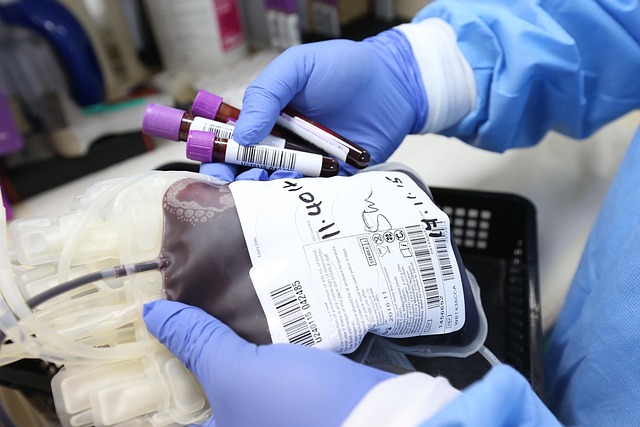Top 10 Fully Funded Master’s Programs in the USA
Exploring graduate study opportunities? Some U.S. universities offer fully funded masters programs that cover tuition and may provide living stipends. This guide highlights 10 options, helping prospective students understand what is offered, eligibility requirements, and how to apply.

What Does “Fully Funded” Mean for a Master’s Program?
A fully funded master’s program typically covers all or most expenses associated with graduate education. This funding usually includes full tuition remission, meaning students don’t pay any tuition fees. Most programs also provide a living stipend or salary to cover basic living expenses, which can range from $15,000 to $35,000 per year depending on the university and location. Additionally, many fully funded positions include health insurance benefits, conference travel allowances, and research funds.
Funding packages generally come in several forms: fellowships (merit-based awards requiring no work), teaching assistantships (requiring teaching undergraduate courses or leading discussion sections), and research assistantships (involving work on faculty research projects). These positions typically require 15-20 hours of work weekly while maintaining full-time student status. It’s important to understand that “fully funded” rarely means completely expense-free; students may still need to cover books, some fees, or supplemental living costs in high-cost areas.
Top 10 Fully Funded Master’s Programs in the USA
-
Massachusetts Institute of Technology (MIT): MIT’s School of Engineering and Sloan School of Management offer substantial funding packages for exceptional master’s students, including tuition coverage and stipends ranging from $30,000-$40,000 annually.
-
Stanford University: Stanford offers numerous department-based fellowships across disciplines like engineering, education, and computer science, with comprehensive packages including tuition waivers and yearly stipends around $35,000.
-
Harvard University: The Graduate School of Arts and Sciences provides substantial funding for master’s students in select programs, with packages often exceeding $40,000 annually plus health benefits.
-
University of Chicago: The Division of Social Sciences offers competitive fellowships covering tuition with stipends of approximately $30,000 for outstanding applicants.
-
Columbia University: Through teaching and research assistantships, Columbia funds master’s students in fields ranging from journalism to engineering, typically covering full tuition with stipends of $25,000-$35,000.
-
University of Michigan: Multiple departments offer funding through Merit Fellowships and Graduate Student Instructor positions that include tuition waivers, health insurance, and stipends.
-
Princeton University: Princeton’s Master in Public Affairs and Master in Public Policy programs offer full funding for nearly all admitted students, with comprehensive packages including living allowances.
-
University of California, Berkeley: Various departments offer Graduate Student Researcher and Teaching Assistant positions that provide full tuition coverage and living stipends.
-
Yale University: Yale’s graduate school offers substantial funding packages across multiple disciplines, with particularly generous support for humanities and social sciences students.
-
University of Wisconsin-Madison: The university’s advanced opportunity fellowships and departmental funding cover tuition with competitive stipends for minority and international students.
Top Universities in the USA Offering Full Funding
Beyond the top 10 programs, several other prestigious universities consistently offer comprehensive funding for master’s students. The University of Pennsylvania provides substantial departmental funding for master’s students in engineering, education, and arts and sciences. Duke University offers merit-based scholarships covering full tuition for exceptional applicants to its Master of Engineering Management and other technical programs.
Carnegie Mellon University stands out for funding in computer science, engineering, and public policy master’s programs, while Vanderbilt University’s Peabody College offers generous funding packages for education master’s students. Public institutions including the University of North Carolina at Chapel Hill and Ohio State University have developed robust funding structures through teaching and research assistantships that cover tuition and provide living stipends.
Schools with substantial research funding often offer more fully funded positions, particularly in STEM fields (Science, Technology, Engineering, and Mathematics) and disciplines with significant external grant support.
How International Students Can Apply
International students face unique challenges when seeking fully funded opportunities but remain eligible for many programs. Most importantly, international applicants should start their application process early, ideally 12-15 months before their intended enrollment date, to allow time for additional documentation requirements. Standardized tests like the GRE, GMAT, or TOEFL/IELTS are typically required, with competitive programs expecting scores in the upper percentiles.
When applying, international students should carefully review each program’s funding conditions, as some fellowships may be restricted to domestic students. However, teaching and research assistantships are generally available to qualified international applicants. Strong recommendation letters from academic references who can speak to research capabilities and scholarly potential are particularly important for funding consideration.
International students should also explore external funding sources such as Fulbright Scholarships, their home country’s government funding programs, and foundation grants specifically designed for international study.
Eligibility Requirements for Fully Funded Master’s Programs
Securing a fully funded master’s position requires meeting rigorous eligibility standards. Academic excellence stands as the primary requirement, with most programs expecting undergraduate GPAs of 3.5 or higher (on a 4.0 scale). Competitive standardized test scores typically fall in the 85th percentile or above for the GRE or GMAT.
Research experience or demonstrated scholarly potential significantly strengthens applications, especially for research-intensive programs. Many programs also require relevant work experience, particularly for professional master’s degrees in fields like business or public policy, where 2-3 years of professional experience may be expected.
Strong personal statements articulating clear research interests aligned with faculty expertise are crucial for securing funding. Programs seek students whose goals match departmental strengths, so demonstrating knowledge of faculty research can substantially improve funding chances. Finally, excellent letters of recommendation from academic or professional references who can speak to an applicant’s potential for graduate-level achievement are essential components of successful funding applications.
The application window for most fully funded programs opens in the fall (September-October) for admission the following year, with deadlines typically falling between December and January. Early applications are strongly encouraged as funding decisions often begin before final deadlines.




